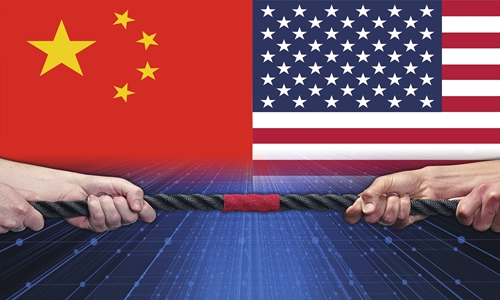Global Times (13 July 2020) – Washington has adopted a strategy to comprehensively suppress China since President Donald Trump took office in 2017. In addition to the trade war and a crackdown on China’s technological companies, the US has also warned federal pension funds against investing in Chinese companies.
Where will this destructive strategy regarding China’s fate end up?
Eli Lake in his Bloomberg View column Thursday claimed that, “The US is trying to turn China into the next Iran.”
The Trump administration has a strategy to make elements of China’s economy toxic to financial markets, according to Lake. Even if the president himself is unpredictable with policies, if Western corporations are forced to reassess their relationship with a US “adversary”, the strategy will serve a useful purpose, the author argued.
Washington seems to have been determined to decouple from China. This is the most profound strategic shift since the two countries established diplomatic relations. In Washington’s logic, China has benefited asymmetrically from the engagement with the US. But it did not remodel according to the US’ will. China’s political system has been regarded by the US as a threat to the liberal democratic model. Washington elites like Lake think only decoupling can end this trend.
To bring China to its knees, the US is exerting economic sanctions and flexing its military muscles. This strategy bears a certain resemblance to the US’ approach to suppress Iran. Decades of US sanctions on Tehran have no doubt severely hurt this Middle Eastern country. But when it comes to China policy, will it achieve its desired goal to make China isolated and weak?
The US is trying its utmost to tie its allies into Washington’s chariot. In many cases, it is coercing allies to obey its will. These include issues such as blocking Huawei and sanctioning China over the Hong Kong national security law. The US is also inciting China’s neighboring countries to confront Beijing.
Washington may believe that its strategy toward China is justified. It hopes its allies and the international community will support this course of action. However, it turns out that countries aren’t foolish enough to take “American First” as their own priority. In the case of Huawei for example, many of the US allies flip-flop on the issue.
On the Iran nuclear issue, the US has ruffled the feathers of its allies by unilaterally withdrawing from the Iran nuclear deal. In March, Britain, France and Germany used the Instex system for the first time to send medical aid to Iran bypassing US sanctions. This raised hopes of salvaging the Iran nuclear deal, according to media reports.
It has been three tumultuous years since the adoption of the comprehensive crackdown on China of the US. In that time, Chinese society has become more united in the face of the US’ “carry a big stick” policy. In light of an old Chinese saying, this US strategy is something like, “killing 1,000 enemy soldiers by losing 800 of its own people.”
More pertinently, China has successfully brought the COVID-19 epidemic under control. It has been able to resume work and production. It is one of the few places on earth now with the most promising potential for growth. It’s not hard to tell which side will suffer more if the US continues to try its decoupling from China economically.
Instead of turning China into the next Iran, the US is turning itself into a loner.


